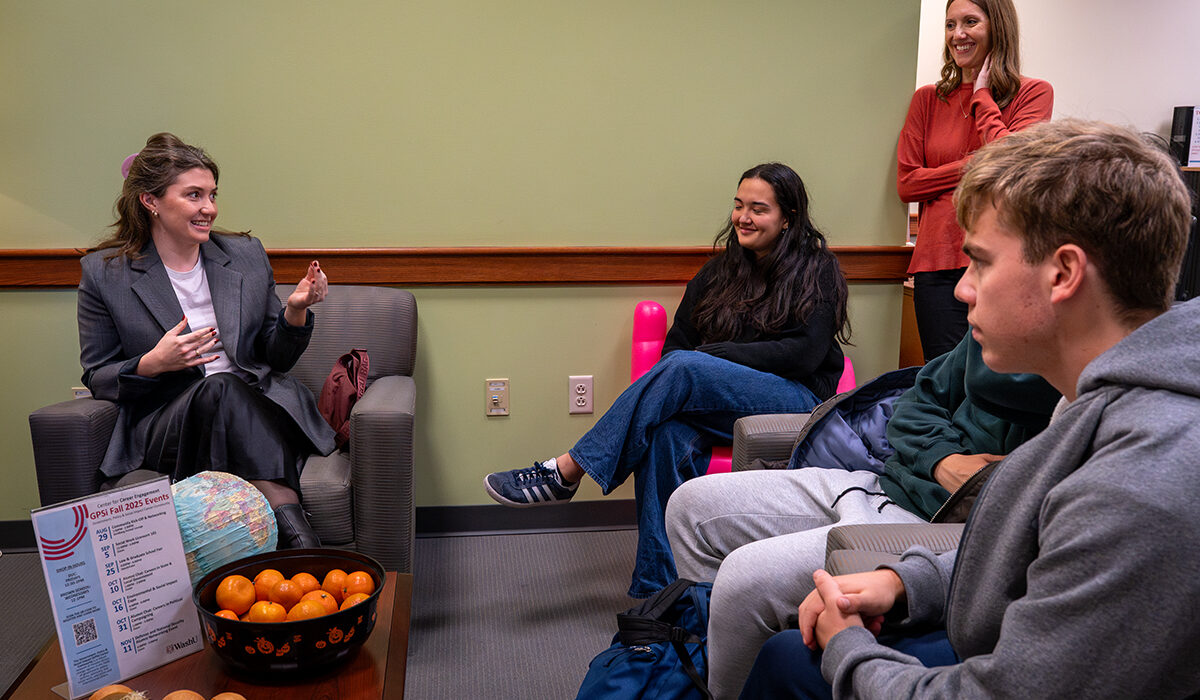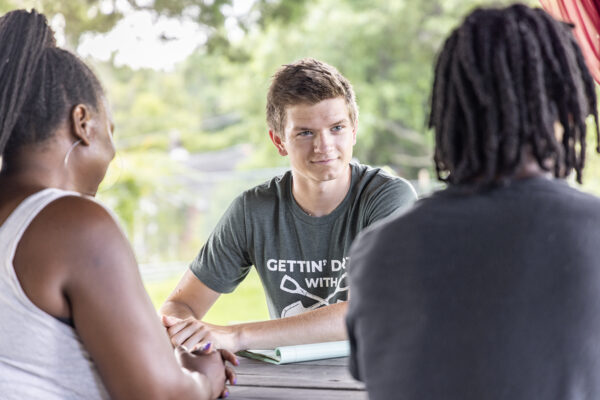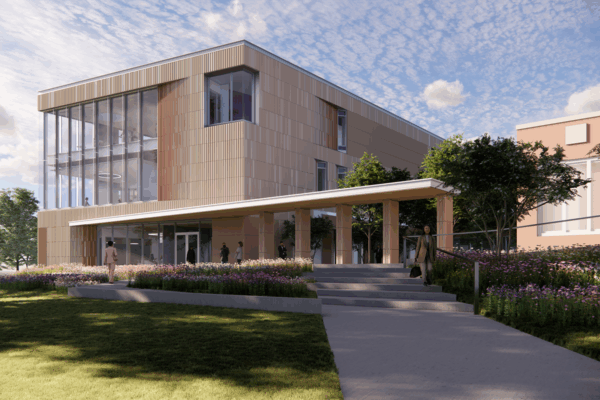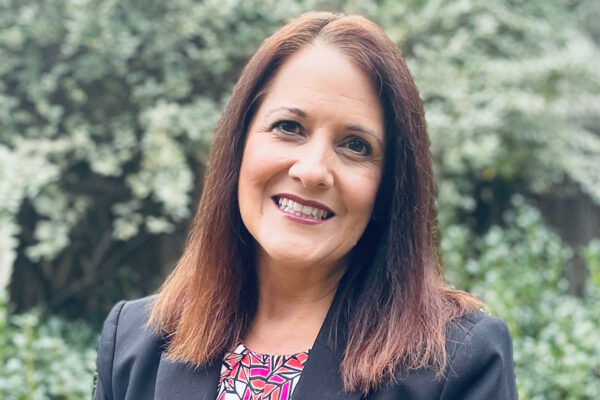As a kid, WashU junior Katelina Theerman Rodriguez wanted to be a writer, then a chef, then an FBI agent.
But by the time she arrived at college, Theerman Rodriguez was no longer so sure.
“It can feel a little daunting when you don’t have a clear career path, especially when a lot of your friends know exactly what they want to do and what classes to take,” said Theerman Rodriguez, who is studying sociology in Arts & Sciences. “But I remind myself that college is all about discovery.”
Theerman Rodriguez is a member of the Center for Career Engagement’s career exploration community and a student in the one-credit class “Career Exploration at WashU,” where she has gained a better understanding of her values and strengths. She is now leaning toward a career in urban planning, a field that would leverage her passion for social justice and interests in community development and affordable housing.
“Being in this class has been clarifying for me in helping me think through what I care most about,” Theerman Rodriguez said.
The Center for Career Engagement (CCE) at Washington University in St. Louis launched its career communities program three years ago, organizing communities around fields like art, design and media; health care and sciences; and technology, data and engineering. Led by certified career coaches, the communities help students identify their purpose — or as CCE staff say, “their why” — and discover the broad spectrum of jobs that match their priorities. The communities also help students develop workplace skills, learn to network and apply for jobs. As of November 2025, 8,921 undergraduate and graduate students are engaged within one or more career communities.
“For a long time, career education focused on that last stage of the job search — the cover letter, the resume, the interview,” said Christine Keller, director of career communities and career development. “But we can’t wait for students to walk into our office. Our goal is to be there for students from the moment they arrive on campus and support them as they are forming their own ideas about what they want to do with their lives.”
Each career community offers dozens of programs and opportunities throughout the year. This week, the art, design and media career community is welcoming alumni designers and publishers at its Creative Careers Expo while the government, policy and social impact career community is providing students professional headshots. Recently the health-care and sciences community prepped for medical school interviews; the technology, data and engineering community toured local robotics operations and business career community members hosted industry leaders from Verkada and American Express. The CCE also hosts career communities for PhD and postdoctoral researchers and for Olin master’s in business administration students. Career community events are open to all students.
At a recent “Career Exploration at WashU” class, senior Maggie Aideyan explained how “LinkedIn stalking” — her instructors prefer the term “building a professional network” — helped her find classmates with similar interests. Like the students in the classroom, she didn’t come to college with a career in mind, but discovered through her classwork, internships and fellowships that she likes client relations.
“You’re at a really good institution, and your peers are doing really cool things. Look at what they are doing and ask them about those opportunities,” said Aideyan, who is studying organization and strategic management at Olin Business School and educational studies in Arts & Sciences. “You may not know exactly what you want to do, but you know you want to do something, so explore what’s out there. Even if it’s not the right fit, there is value in knowing what you don’t want to do.”
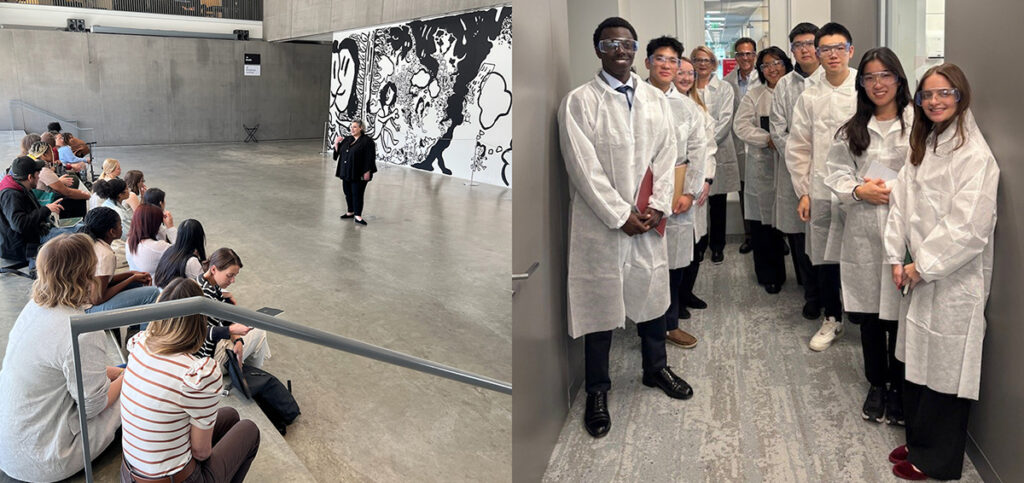
‘Where do you fit in?’
Across the nation, colleges and universities are facing intense pressure to improve career outcomes and demonstrate return on investment. Higher education’s job, many students and their parents would argue, is to prepare graduates for the workforce. You would think Keller, a career education professional, would champion that view, but she doesn’t — at least, not exactly.
“To me, college is to learn and to grow and to know yourself and the world differently,” Keller said. “But there are things that you can do here to help you be successful when you leave.”
Keller was a first-generation college student at Illinois College. Her dad was a printer because his dad was a printer; her mother was a stay-at-home mom because her mom was. They told Keller that her life would be different. Keller loved studying languages and excelled in school. She thought good grades would lead to a good job. She was wrong.
“I had a German professor who stretched out his arms and said to me, ‘Christine, the world is so big. Where do you fit in?’ I never felt so small because I had no idea where I fit,” Keller said.
After a few temp jobs, Keller landed an entry-level position at the University of Colorado Boulder. One day, a frazzled first-generation student and her mother arrived with computer problems. Keller got the student registered for classes and put the mom at ease.
“It was a small thing, but I realized that helping students is what I wanted to do. It was such a powerful feeling to be able to say to that mom, ‘We are going to take care of your daughter,’” Keller said. “At that moment, I realized where I fit in.”
Alden St. John, a first-year student and member of the government, policy and social impact career community, has just started his quest to find his place. He wants to work in politics, but is learning the field is broader than he realized. That’s why he regularly attends community drop-in hours to consult CCE advisers and employers. On this day, he meets a representative from the Coro Fellows Program in Public Affairs, a civic leadership program.
“I’m years away from graduating, but I’ve already found great mentors,” said St. John, who is majoring in political science in Arts & Sciences. “This has been a great way to figure out what avenues are available to me. And, to be honest, what jobs may no longer be available to me because of government cuts.”
Indeed, Susan Craig, associate director of the government, policy and social impact career community, has been busy helping alumni who have recently lost their jobs in the federal government or at nongovernmental organizations. Unlike many career centers, WashU’s CCE supports alumni and welcomes their participation in the career communities.
“A big part of our work is to pay attention to labor trends and respond accordingly,” said Craig, who has served as an adviser for 14 years as well as an adjunct faculty member in national security and diplomacy. “For us, that means more programs that highlight state and local opportunities.”
None of this work is new. For a long time, WashU has hosted career fairs, employer visits, alumni panels and “Bear Trek” trips to large markets such as Chicago and New York. But the CCE has made some important changes since it moved to a unified career center model three years ago. For one thing, there is just more of everything — more coaches, more events, more tools and assessments, more outreach to student groups, more collaboration with faculty.
In addition, opportunities aren’t limited to certain schools or majors. That means the math major and the computer science major both have an opportunity to meet with the tech startup looking to hire a data scientist, while the history student and the communication design student both can learn about opportunities at New York publishing firms. In the past, employers would meet with students from a specific school or ask a professor to identify their favorite student.
“It’s better for our employers and, more importantly, it’s better for students,” Keller said. “We are building our students’ social capital so they are in a position to thrive, now and in the future.”
